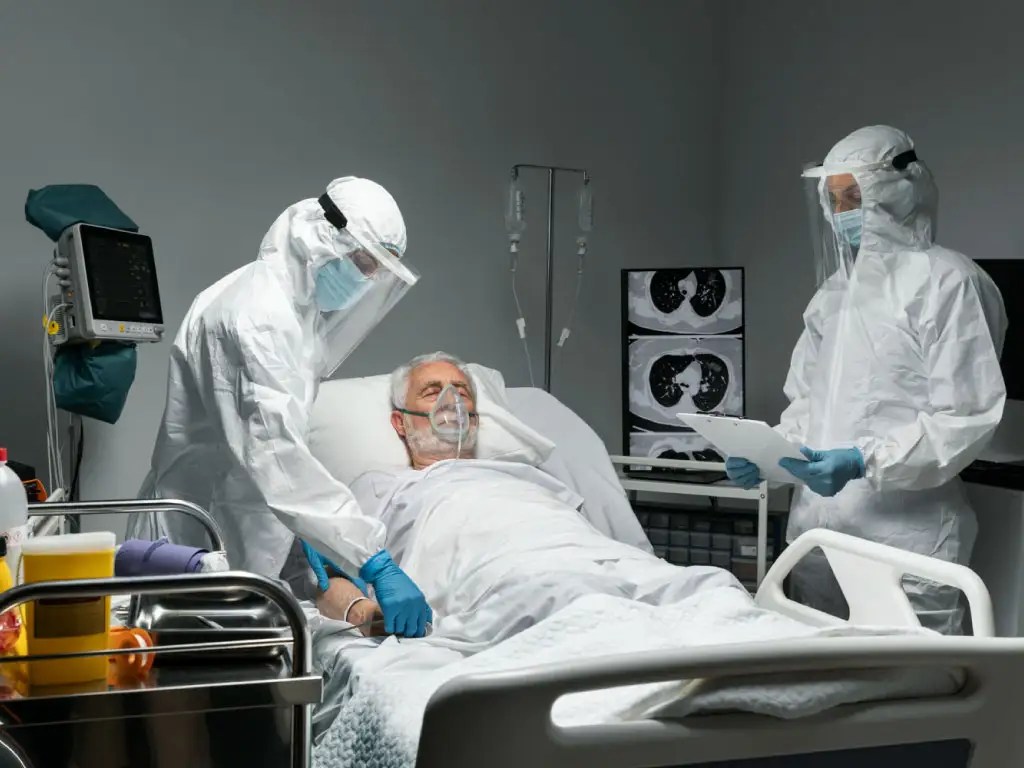The ROI of Speed: Calculating the Cost-Benefit of Multiplex PCR in India’s ICUs

The ROI of Speed: Calculating the Cost-Benefit of Multiplex PCR in India’s ICUs
In the high-stakes environment of an Intensive Care Unit (ICU), every minute counts. For hospital administrators, CFOs, and procurement heads across India, this translates directly to the bottom line. While the clinical benefits of rapid pathogen identification in critically ill patients are clear—saving lives and improving outcomes—the financial implications often remain an untapped narrative. At BioCipher.ai, we believe it’s time to reframe the conversation: multiplex PCR isn’t just a clinical advancement; it’s a strategic capital investment with a quantifiable Return on Investment (ROI), especially pertinent in a healthcare landscape grappling with low ICU bed ratios and escalating antimicrobial resistance (AMR).
Beyond “Saving Lives”: The Tangible Financial Benefits
For too long, the value proposition of advanced diagnostics has been presented solely through a clinical lens. While compelling, this often overlooks the language of finance that resonates with decision-makers. Let’s break down how the speed and precision of BioCipher’s multiplex PCR panels translate into substantial cost savings and operational efficiencies.
1. Direct Cost Savings: Optimizing Antibiotic Stewardship
The current reality in many Indian ICUs involves initiating broad-spectrum antibiotic “best-guess” cocktails while awaiting conventional culture results—a process that can take 48-72 hours. This approach, while necessary in the absence of rapid diagnostics, is inherently expensive and often suboptimal.
Reduced Drug Expenditure: Our multiplex PCR panels can identify pathogens and relevant resistance markers within hours. This rapid turnaround allows clinicians to de-escalate from expensive broad-spectrum antibiotics to targeted, narrower-spectrum drugs much faster. Avoiding unnecessary use of premium, last-resort antibiotics (like carbapenems or polymyxins) for susceptible infections significantly slashes pharmacy costs. Imagine the collective savings when this precision is applied across dozens of ICU patients annually.
Minimized Adverse Events: Broad-spectrum antibiotics carry a higher risk of side effects, including C. difficile infections, which incur additional treatment costs and extend hospital stays. By enabling targeted therapy, BioCipher helps mitigate these costly complications.
2. Indirect Cost Savings: Shrinking the ICU Length of Stay (LOS)
Perhaps the most compelling financial argument for rapid diagnostics in India’s ICUs is its profound impact on the Length of Stay (LOS). Given the critical shortage of ICU beds nationwide, freeing up a bed even a day earlier can have cascading financial and operational benefits.
Increased Bed Turnover: A quicker, more effective treatment initiation based on precise pathogen identification means patients stabilize and recover faster. This accelerates discharge from the ICU to a general ward, or even home, significantly reducing the patient’s overall hospital bill and, crucially, making an invaluable ICU bed available for the next critically ill patient.
Reduced Resource Utilization: A shorter ICU stay translates to less consumption of high-cost ICU resources—ventilators, continuous monitoring, specialized nursing care, and consumables. These are not insignificant savings in a resource-constrained environment.
Enhanced Hospital Capacity: For hospitals operating at or beyond capacity, reducing LOS is equivalent to creating new bed capacity without the monumental capital expenditure of building new units. This boosts overall hospital throughput and revenue potential.
Here’s a simplified illustration of the potential impact:

3. The AMR Mitigation Value: An Insurance Policy Against Catastrophe
India faces one of the highest burdens of Antimicrobial Resistance (AMR) globally. Treating Multi-Drug Resistant (MDR) infections is notoriously expensive, requiring prolonged hospital stays, highly specialized and often costlier drugs, and intensive nursing care. An MDR infection can transform a routine hospital admission into a prolonged, resource-draining battle.
Preventing Costly MDR Outbreaks: By enabling precise and judicious antibiotic use, BioCipher panels are a powerful tool in antimicrobial stewardship programs. They help prevent the emergence and spread of MDR pathogens within the hospital, acting as a proactive insurance policy against the potentially catastrophic financial and human costs of an MDR outbreak.
Reduced Treatment Failure Rates: Rapid identification of resistance markers means clinicians can avoid ineffective antibiotics from the outset, leading to better patient outcomes and preventing the need for subsequent, more expensive salvage therapies for treatment failures.
BioCipher.ai: A Strategic Investment for India’s Healthcare Future
For hospital management, financial heads, and quality improvement teams, the BioCipher multiplex PCR solution represents more than just advanced diagnostics; it’s a strategic investment in operational efficiency, financial prudence, and enhanced patient care. By providing rapid, precise, and actionable insights, we enable hospitals to:
Optimize resource allocation: Maximizing the utility of every precious ICU bed.
Drive down direct costs: Through smarter antibiotic prescribing.
Mitigate the threat of AMR: Safeguarding both patients and institutional finances from the spiraling costs of resistance.
The ROI of speed is measurable—let’s use the framework mentioned above to estimate how multiplex PCR could improve ICU efficiency, reduce costs, and expand capacity in your hospital.
